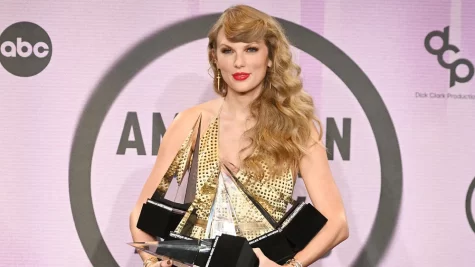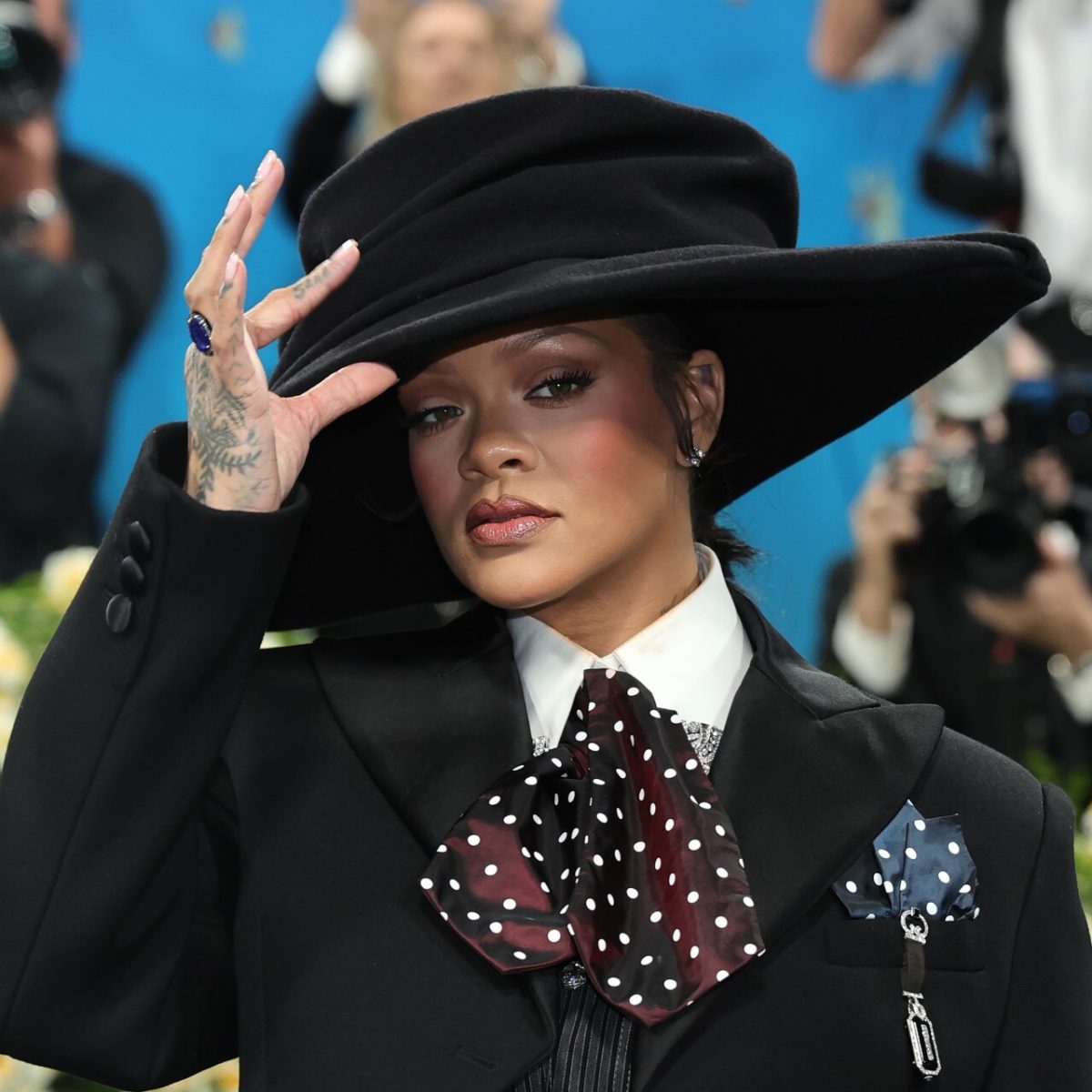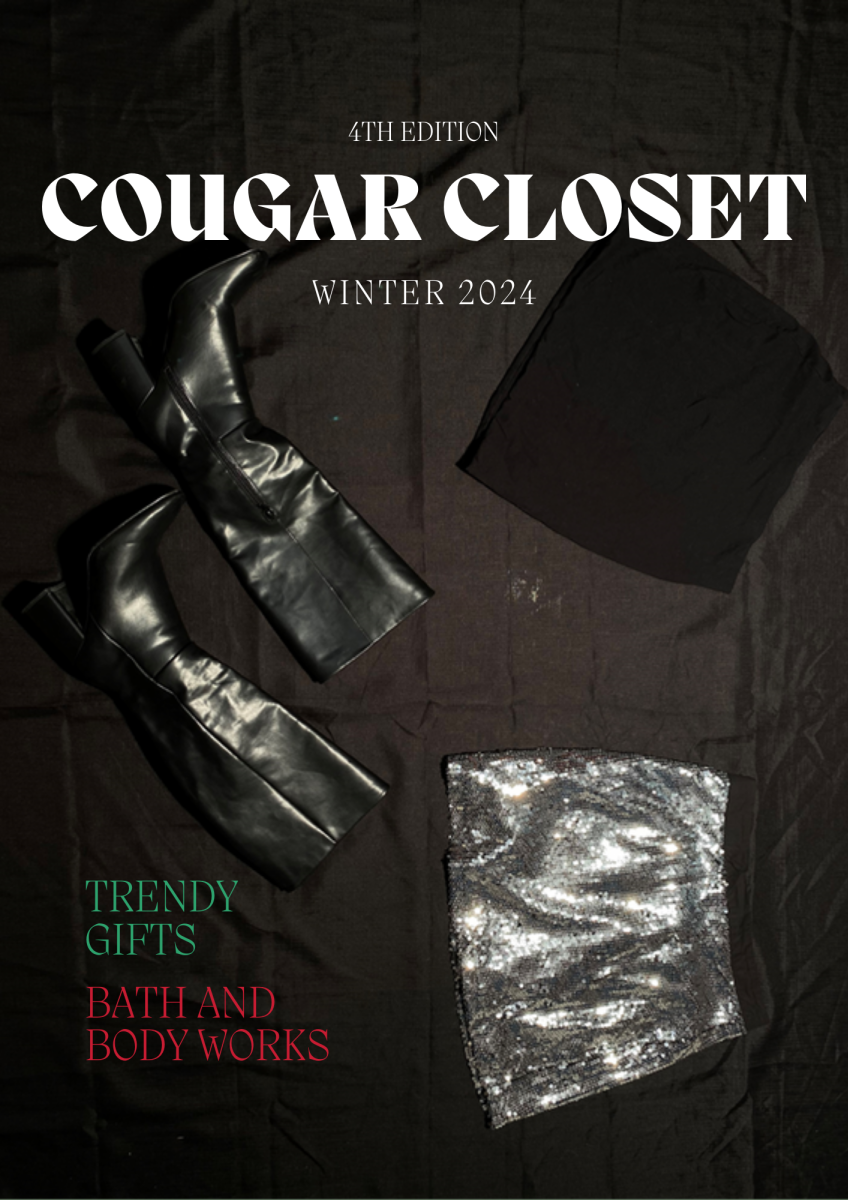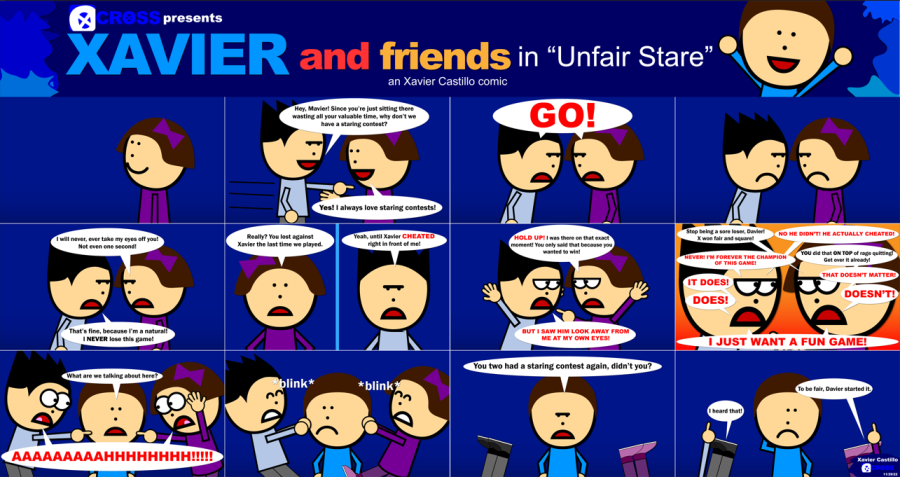Tactless Taylor or Salty Swifties
December 11, 2022
Taylor Swift is an icon, a living legend, and a global sensation. She is a famed singer, songwriter, performer, and director, and she has been very busy recently: re-recording and releasing all of her past albums AND making new music. Since her newest album’s release, she has been under extra scrutiny despite having a career that is no stranger to both the public eye and controversy.
At the 2022 MTV Video Music Awards, Taylor Swift shocked fans with the announcement of a new album titled Midnights which had her fans excited and ready for whatever she would throw at them. With all that excitement, there was also chaos dancing around the internet. Crazy conspiracies that the album was just a front for her to re-release her third album Speak Now ran rampant. There were even rumors that Midnights was written before the 2017 Reputation and was originally going to be released then, before her feud with Kanye West.
Capitalizing on the buzz, T-Swizzle decided to begin a bread-crumb trail using TikTok. She did this by creating a series called Midnights Mayhem with Me where she would spin a bingo cage that revealed a ball with a number on it which indicated to her which track’s name she would reveal. She did this for all thirteen songs one by one and made it seem like it was up to fate.
Stunts like this aren’t out of the ordinary for Swift as she is known for her seemingly unprompted easter egg drops, but nevertheless the rollout of her tenth studio album has been chaotic. At any given moment, especially at midnight, she had fans on the edge of their seats.

But at what cost? Were fans misled and exploited? Is the scandal just a part of her fame or is she part of the problem?
Since the album’s release on October 21st, fans have been in disarray over speculation on Taylor Swift’s sexuality. Although her sexuality should be kept private, and fans have no business in knowing or speculating, many claim that she has been Queerbaiting, and this isn’t the first time this accusation has been thrown out at her.
Track one on Midnights, titled “Lavender Haze,” is a popularized queer term. In the early 1900s, saying you had a ‘streak of lavender’ in you meant that you identified as part of the LGBTQ+ community. The words ‘Lavander Haze’ later took on a more sapphic definition which described the all-consuming state of being a closeted lesbian who was in love. After revealing the title, Swift took to Instagram Reels to delve deeper into what the song was about and why she chose the title. She says, “I looked it up and I thought is sounded cool, and it turns out it’s a common phrase used in the 50s where they would just describe being in love.”

But why was that such a problem?
Well, by acknowledging that the term had a history and that it did surround love in general but not mentioning its queer connotation, many fans of Taylor felt a sense of betrayal, like Taylor didn’t want the meaning of her song to even be associated with queerness.
One TikTok user @Coffeeinmywineglass used her platform to break down why the title faced such backlash. In her video she says, “Describing the haze of your love as lavender is appropriating.” Others agree, commenting that straight people should not use the symbolic term.
Similarly, Taylor Swift’s third track on the album, “Anti-Hero,” also faced some backlash but more specifically, the music video for the song did. In its original state, the video had a clip where Taylor steps on the scale and it zooms in on where the numbers would be, but it just shows the word “fat” instead. This clip has since been removed but the damage was already done. Many fans jumped to her defense explaining that Swift dealt with an eating disorder and body image struggles, and thus had a right to feel that way, but it didn’t help that on Twitter she described the video as depicting her “nightmare scenarios and intrusive thoughts,” which many took to mean that she feared being fat.

There is definitely a difference between saying fat is bad and talking about your own body struggles, but did Swift cross the line? Was she being fat-phobic?
TikTok user @babbity.kate addressed the fat-phobic accusations surrounding the music video in her own video styled as a conversation between two conflicted versions of herself. She says, “When [Taylor] is being hateful towards herself, she calls herself fat, in her nightmare she is fat, that is fatphobia.” Her other self disagrees remarking, “Look at the rest of the music video, she feels too large but it’s metaphorical. She attracts too much attention, she’s clumsy and embarrassing, and tramples over everyone…It doesn’t have anything to do with body fat, she just feels like too much.”
She continues, “Can you even imagine what would happen if she actually did become fat, like the ramifications that would have for her career, and her social circle, and her mental health? Taylor Swift is a case where becoming fat would actually be a nightmare not just in her head but in her reality.”
The song titles and music videos aren’t even where the Midnights controversy ends. Many fans feel that the entire rollout of her album was misleading and just an overall money-grabbing scam.



































